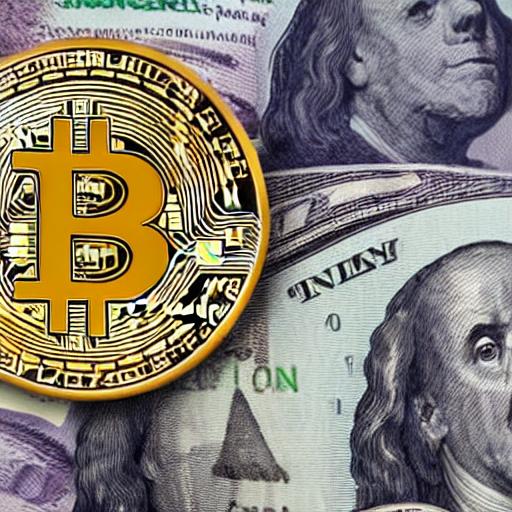Soon after many Wall Street banks failed in 2008, a nine-page document that proposed a new kind of financial system that wouldn’t rely on any “trusted third party” appeared on a secret mailing list.
The study laid the groundwork for the growth of the cryptocurrency market. Its supporters rejected the high-risk business practices of a small group of powerful financial firms that contributed to the Great Recession, instead promising to conduct business in a transparent and equitable manner.
Executives are now desperately attempting to show that they are capable of learning from their mistakes and recapturing the initial goals of the sector. A year ago, they were celebrating the crypto market’s seemingly unstoppable expansion. Last month, Binance, the largest exchange in the world, announced that it would disclose more information about its finances and hire outside auditors to review those disclosures. In a statement, Coinbase, the biggest cryptocurrency exchange in the US, stated that it was committed to a decentralized system where you don’t have to trust them.
In order to push for more radical reforms, many cryptocurrency proponents are urging investors to store their digital assets on more experimental platforms run entirely by code rather than with major corporations.
But despite all the promises of change, FTX’s failure shows how far cryptocurrency is from reaching its potential and winning over the general public. Consumer mistrust has increased this year as a result of sizable financial setbacks, criminal investigations, and a hostile regulatory environment in Washington. At a conference last month, Binance CEO Changpeng Zhao predicted that the sector would lag by years as a result of the demise of FTX.
The exchange’s demise hastened months of losses in the virtual currency market, which were triggered by a severe spring crisis that occurred amid a broader retreat from risky assets. As a result of the upheaval, some well-known cryptocurrency companies declared bankruptcy. Bitcoin, the first and most well-known cryptocurrency, has been trading for less than $17,000, down roughly 75% from its peak of nearly $70,000 almost exactly one year ago.
John Reed Stark, a former Securities and Exchange Commission official and outspoken critic, stated,
You begin to encounter these difficulties, and they pile up one after the other. More and more people are recognizing that this is a hoax.
The cryptocurrency market has recovered from previous crashes, attracting well-known investors who have put even more money into cutting-edge companies. However, the worst incident in the sector’s brief history has been cited as FTX’s collapse.
Beginnings of Bitcoin
In 2008, a mysterious author by the name of Satoshi Nakamoto published a white paper on Bitcoin that detailed the concepts that would later give rise to cryptocurrencies, thus creating the first cryptocurrency. The article described the blockchain, a publicly accessible ledger where transactions would be recorded for everyone to see, which was the fundamental technology of Bitcoin.
Early Bitcoin proponents thought it might act as the foundation of an open and equitable financial system. The majority of the paper’s readers were libertarians who had grown tired of traditional finance, particularly the concentration of power in the hands of a small number of large corporations.
At first, cryptocurrency was mostly used for illegal purposes. Bitcoin was used to transfer large sums of money by thieves and drug dealers without the use of a bank or other middleman.
But as technology advanced to support more complex financial applications like borrowing and lending, law enforcement improved its capacity to detect cryptocurrency crime. People who started out on Wall Street, like Sam Bankman-Fried, the inventor of FTX, who worked at the trading firm Jane Street, became involved in the emerging industry in an effort to profit from the technology.
As the company grew, some characteristics of the Wall Street institutions it was meant to replace started to show. The world of cryptocurrency trading became increasingly centralized as more and more transactions were concentrated on a small number of key exchanges, such as Binance, FTX, and Coinbase. The trading volume of cryptocurrencies on Binance alone surpassed that of its seven closest competitors in the months before FTX’s demise, claims an industry data tracker.
The initial purpose of cryptocurrencies, according to Charley Cooper, managing director at the blockchain company R3, was an international effort to rewrite the rules of finance.
And now we’re back in a field that is even more tightly regulated than banking.
The value of cryptocurrencies skyrocketed up until May of last year and into 2022. At that time, the market for cryptocurrencies collapsed due to the crash of the widely used cryptocurrency Luna. Significant lenders Celsius Network and Voyager Digital both filed for bankruptcy. Enthusiasts lamented a “crypto winter” of low prices and waning interest.
FTX was regarded as a somewhat dependable force during the crisis. The Bahamas-based company offered a marketplace where customers could buy and sell cryptocurrencies as well as well-liked, but risky, trading options that are illegal in the US. Bankman-Fried was well-known for saving failing companies and aiding friends in need. He had grown FTX into a $32 billion company.
Then, an $8 billion hole in FTX’s accounts was discovered by a run on deposits last month. The company filed for bankruptcy a week later. Alameda Research, a cryptocurrency hedge fund that was also established and owned by Bankman-Fried, is the subject of a joint investigation by the Securities and Exchange Commission and the Justice Department. This investigation is looking into whether FTX improperly loaned money from its customers to this company.
The implosion has been referred to as a “Lehman moment” for cryptocurrencies, in reference to the investment bank whose failure contributed to the 2008 financial crisis. Other companies linked to FTX started to sway. The cryptocurrency lender BlockFi, one of the companies that FTX had bailed out in the spring, filed for bankruptcy on Monday, citing its connections to Bankman-Fried.
Some well-known cryptocurrency figures have made an effort to spin the demise of FTX as a good thing, arguing that it will direct attention toward creating practical applications for the technology.
Jeremy Allaire, the CEO of cryptocurrency payment company Circle, said, This is a fantastic opportunity for them. The guys who were focused on building massive speculative trading casinos are unhappy because they are providing actual value.
Although most of Binance’s operations resemble those of FTX, the company’s CEO, Mr. Zhao, has recently made an effort to distinguish himself from Mr. Bankman-Fried by calling the former competitor a liar and criticizing FTX’s riskiest business practices. On Nov. 25, Binance unveiled a brand-new “proof of reserves mechanism” to allay users’ worries that it would be vulnerable to the same kind of run on deposits that destroyed FTX and to inform users of the amount of bitcoin held in its accounts. (However, Binance’s suggestions drew criticism for leaving out important information.)
To allay worries about a collapse, Coinbase claimed in a blog post that it always holds the same amount of money that customers deposited. There “cannot be a ‘run on the bank’ at Coinbase,” according to the post.
Some business insiders, however, assert that the very existence of significant companies like Binance, Coinbase, and FTX is in conflict with the fundamentals of cryptocurrencies. Since FTX’s demise, some enthusiasts of cryptocurrencies have flocked to smaller businesses in the experimental field of decentralized finance, which allows traders to borrow, lend, and conduct transactions without banks or brokers, relying instead on a publicly available system supported by code.
DeFi has its own problems though, like its susceptibility to hackers, who have this year stolen billions of dollars from research projects.
According to American University finance specialist Hilary Allen, They’ve based it on clumsy technology that is incredibly wasteful. They run extremely delicate operations.
There has also been more scrutiny in Washington. Gary Gensler, the chairman of the SEC, has threatened to look into cryptocurrency firms for violating securities laws. The House Financial Services Committee is anticipated to hold a hearing on December 13 to go over FTX’s demise.








